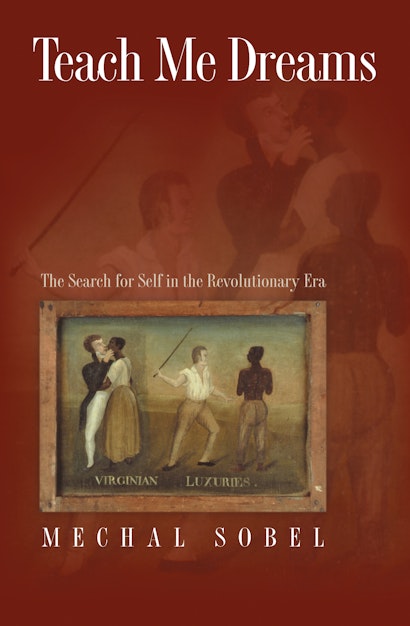Teach Me Dreams: The Search for Self in the Revolutionary Era


Paperback
ebook
- Sale Price:
- $30.80/£24.50
- Price:
-
$44.00/£35.00 - ISBN:
- Published:
- Apr 13, 2021
- Copyright:
- 2000
- 34 halftones
- Main_subject:
- History
30% off with code PUP30
One day in 1698, Robert Pyle of Pennsylvania decided to buy a black slave. The next night he dreamed of a steep ladder to heaven that he felt he could not climb because he carried a black pot. In the dream, a man told him the ladder was the light of Jesus Christ and would bear any whose faith held strong; otherwise, the climber would fall. Pyle woke that morning positive that he should eschew slaves and slavery, having equated the pot with the slave he wished to buy. In fact, so acutely did this dream awaken him to his sins that he became a dynamic advocate of liberation. This dream literally changed his outlook and his life.
Teach Me Dreams delves into the dream world of ordinary Americans and finds that as their self-perception increased, transforming them on a personal level, so did a revolutionary spirit that wrought momentous political changes. Mechal Sobel considers dreams recorded in the life narratives of 100 people, revealing the America of the Revolutionary Era to have been a truly dream-infused culture in which analysis of dreams was encouraged, and subsequent personal reevaluation was striking. Sobel uses a wealth of information—letters, diaries, and over 200 published autobiographies from a wide range of “ordinary” people; black, white, male, female. In these accounts, many previously neglected by historians, dreamers explain how their nighttime adventures opened their eyes to aspects of themselves, or unveiled new paths they should take both personally and politically. Such paths often led them to challenge those in power.
Charting the widely dreamed of opposition between blacks and whites, men and women, Sobel offers astounding new insights into how early Americans understood their lives. Her analysis of the dreams and lives of ordinary Revolutionary-Era people demonstrates links between dreaming, self reevaluation, and participation in the radically changing politics of the time. This book will appeal to specialists in the fields of American and African-American history, and anyone interested in dreams and self-development.